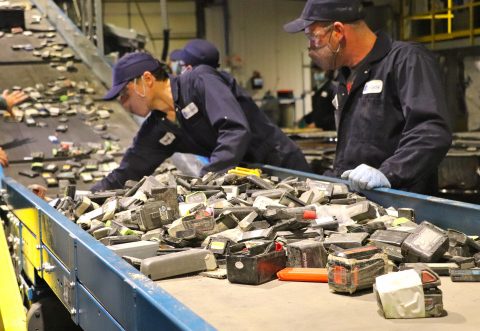Yesterday, Lithium battery recycling company Li-Cycle announced it would be acquiring a $375 million conditional loan from the Department of Energy.
The loan is intended to fund a new Li-Cycle facility near Rochester, New York. The plant will be the “first commercial hydrometallurgical resource recovery facility” in the U.S. While the company’s current factories will continue breaking electric vehicle batteries down into critical metals, also known as “black mass,” workers at the new location will further refine this product into raw, battery-grade materials. Although an exact opening date has yet to be announced, the company hopes to process up to 35,000 tonnes of black mass a year, resulting in 8,500 tonnes of lithium carbonate, 48,000 tonnes of nickel sulphate, and 7,500 tonnes of cobalt sulphate. This would supply enough resources to build 200,000 EV batteries annually.
Lithium batteries remain one of the most costly components for EV automakers to build. Although materials have since become cheaper, supply chain disruptions in the wake of the COVID pandemic, in addition to increased EV demand, caused lithium carbonate prices to reach roughly eight times their 2019 value last year. Critics of the industry’s push to accelerate electrification have also argued, with varying degrees of accuracy, that current reductions in fuel consumption fail to remedy the pollution caused by battery manufacturing. With its new investment from the Department of Energy, Li-Cycle aims to address this discrepancy. However, it may take some time for these improvements to be felt by EV consumers, who remain handicapped by high car prices.



